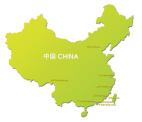U.S. Internet Firms Will Lose Much, Get Little in China

From MarketWatch:
"After spending 10 days in Beijing and Shanghai meeting with executives, venture capitalists and government officials, analysts Stewart Barry and Michael Zhang wrote the following:
We feel that U.S. Internet firms, in particular Google, will continue to struggle to penetrate the market as core ideological conflicts between the Chinese government and American media make China a far-off, if altogether limited, opportunity, given China's current political realities.
The Chinese government remains the ultimate arbiter of media content. Control over media and communication is a core strategic asset of the Chinese communist regime and, as such, the government is intimately involved in the development, nay, it is the final arbiter, of media content, both traditional and new, in China."























